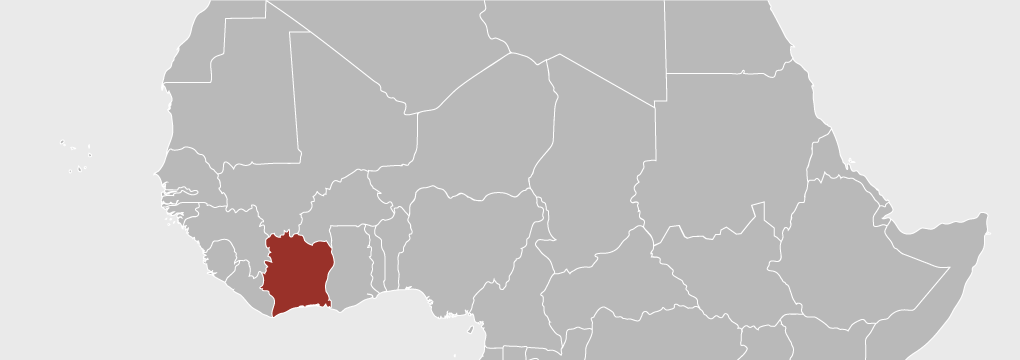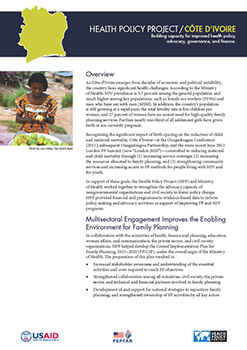The Health Policy Project ended in 2016. Work continued under Health Policy Plus (HP+) until 2022.
Côte d'Ivoire

Country & Regional Programs
- ► Africa
- ► Asia and the Middle East
- ► Europe and Eurasia (E&E)
- ► Latin America and the Caribbean (LAC)
Overview
With an estimated HIV prevalence of 3.4 percent among adults 15 to 49 years old, Côte d’Ivoire remains one of the countries most affected by HIV in West Africa. Since 2004, HIV/AIDS-related mortality has decreased, but the threat remains as the country experiences a generalized epidemic in which UNAIDS estimates approximately 450,000 people are living with HIV. While conflict and instability have affected progress in recent years, Ivoirian leaders acknowledge the need to address the epidemic and have renewed their commitment in the response to HIV.
What We Do
The Health Policy Project (HPP) provides technical assistance and training to policymakers and institutions to estimate the cost for reaching female sex workers (FSW) and men who have sex with men (MSM) with HIV services in Côte d’Ivoire. HPP focuses on building the capacity of government and local partners to assess the costs incurred and overall impact of implementing HIV prevention programs. As a result, stakeholders will be able to develop HIV prevention strategies that maximize budgetary resources and target key populations at higher risk, including FSW and MSM and their clients.
Publications and Resources
Costing Data Use Guide for Providing Key HIV Services to Female Sex Workers (FSW) and Men Who Have Sex with Men (MSM) in Côte d’Ivoire
The USAID-funded Health Policy Project (HPP) formed a study team to estimate the unit costs associated with a minimum package of HIV services for female sex workers (FSWs) and men who have sex with men (MSM).
Achieving the MDGs: The Contribution of Family Planning: Cote d'Ivoire
Achieving the MDGs: The Contribution of Family Planning: Côte d'Ivoire (French)


